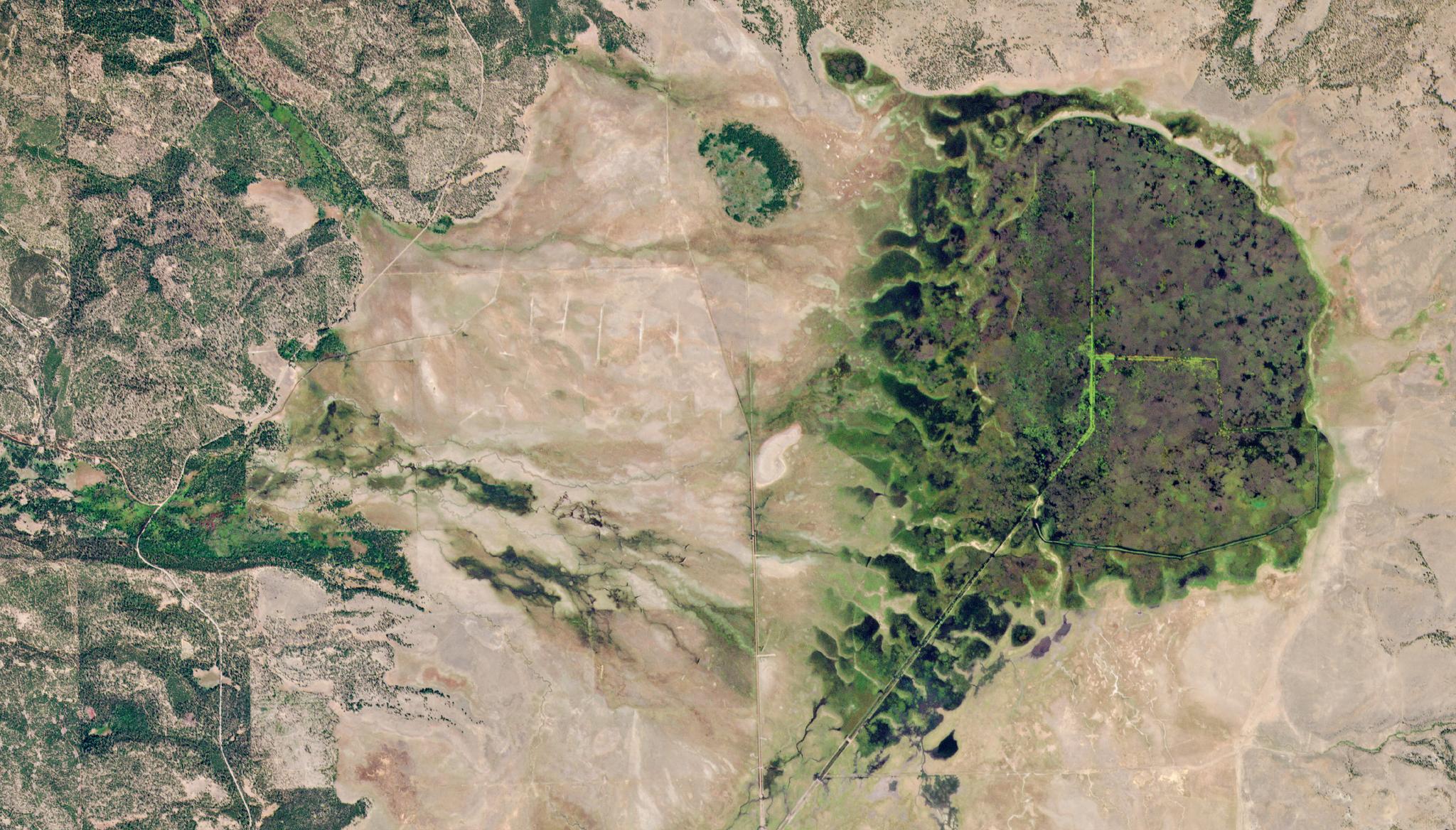Planet Partner Upstream Tech To Offer Global Basemaps Subscription within Lens

PlanetScope image of Sycan Marsh conservation site in Oregon taken September 3, 2019. © 2019, Planet Labs PBC. All Rights Reserved.
StoriesWe are excited to share the latest about our collaboration with Planet partner Upstream Tech. Through a new integration with Upstream Tech’s Lens platform, PlanetScope Basemaps is now available through a Planet Basemaps in Lens, allowing users to access both global, monthly visual Basemaps with historical imagery back to the start of 2020, as well as new up-to-date Basemaps that will appear directly in Lens moving forward.
PlanetScope visual basemaps are time series mosaic products created from all scene captures within a month, optimized for consistency and minimal cloud cover. Bundling Basemaps into Lens is intended to provide users instant access to analysis, so they can get the information needed quickly and process it without additional geospatial experts.
“This subscription offering is designed to provide a frictionless opportunity for organizations to utilize global remotely sensed data within an easy to use software tool,” commented Planet’s Michael Parker, Director of Corporate Development. “The partnership with Upstream Tech embodies the value that our Planet Orbit partners provide end users. We are excited about making our data more accessible and actionable in partnership with Upstream Tech.”
Dive Dive deep on how Upstream is “supercharged” by Planet’s Basemaps in their blog cross-posted below:
###
Upstream Tech
Planet X Lens: Remote Monitoring Supercharged By Planet’s Monthly, Global Imagery
By Marshall Moutenot
We launched Lens with a simple hypothesis: that by expanding access to earth observation, and empowering everyone to engage in remote monitoring and analysis, regardless of technical background, we could change how natural resources were managed. That approachable technology could accelerate the pace and scale of environmental investments.
Today, hundreds of organizations use Lens for just that, with satellite and aerial imagery and geospatial databases now demystified and within reach. Land trusts and state agencies have found land protection violations, timber harvests, and illegal construction. Companies use Lens to set a new standard of transparency and rigor for their nature-based carbon investments. Conservation organizations are monitoring ecological indicators at a frequency and insight previously not possible.
For the uninitiated, earth observation data comes in all shapes and sizes, literally. Some satellites are designed to capture high-detail, but only take a picture when someone places an order. Other satellites trade in detail for frequent, global, and regular capture. Before recently, no satellite was detailed, high-frequency, and global.
And technically (if I wore glasses 👓 this would be my opportunity to nudge them up my nose), even now no one satellite does both.
Enter Planet. They took a unique approach by launching over one hundred nimble, capable satellites called Doves. This constellation of satellites, called PlanetScope, makes up the largest coordinated collection of Earth-imaging satellites. Together, they “line scan” the planet to provide imagery of the entire Earth at 4-meter resolution every day.
Clearly, we’ve long-admired Planet. And not just for their technological innovations, but also their aligned mission to use space to help life on earth. So we are thrilled to launch a collaboration: PlanetScope Basemaps are now available for subscription in the Lens Library. You’ll get global access to the monthly visual Basemaps with historical imagery back to the start of 2020, and new Basemaps will appear in Lens like magic 🪄.
We’re in an era of unprecedented access to high-quality data that can inform how we steward our lands and water globally. And we’re thrilled to be part of a movement to put data into the hands of decision-makers who will shape the future of our planet.

Ready to Get Started
Connect with a member of our Sales team. We'll help you find the right products and pricing for your needs

